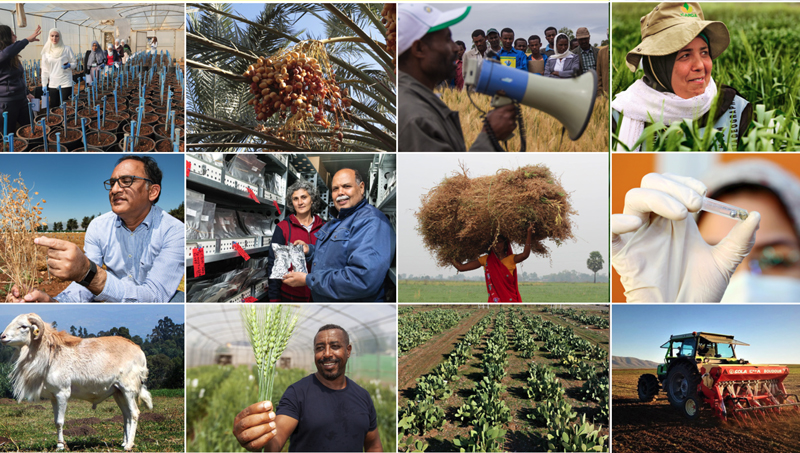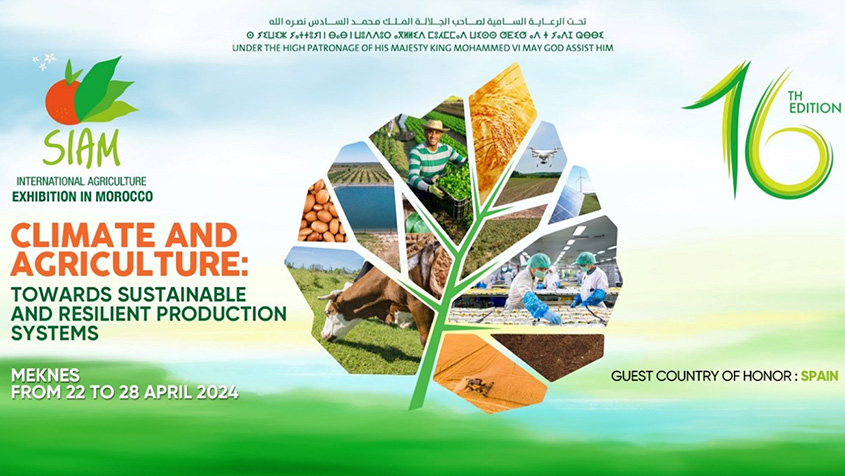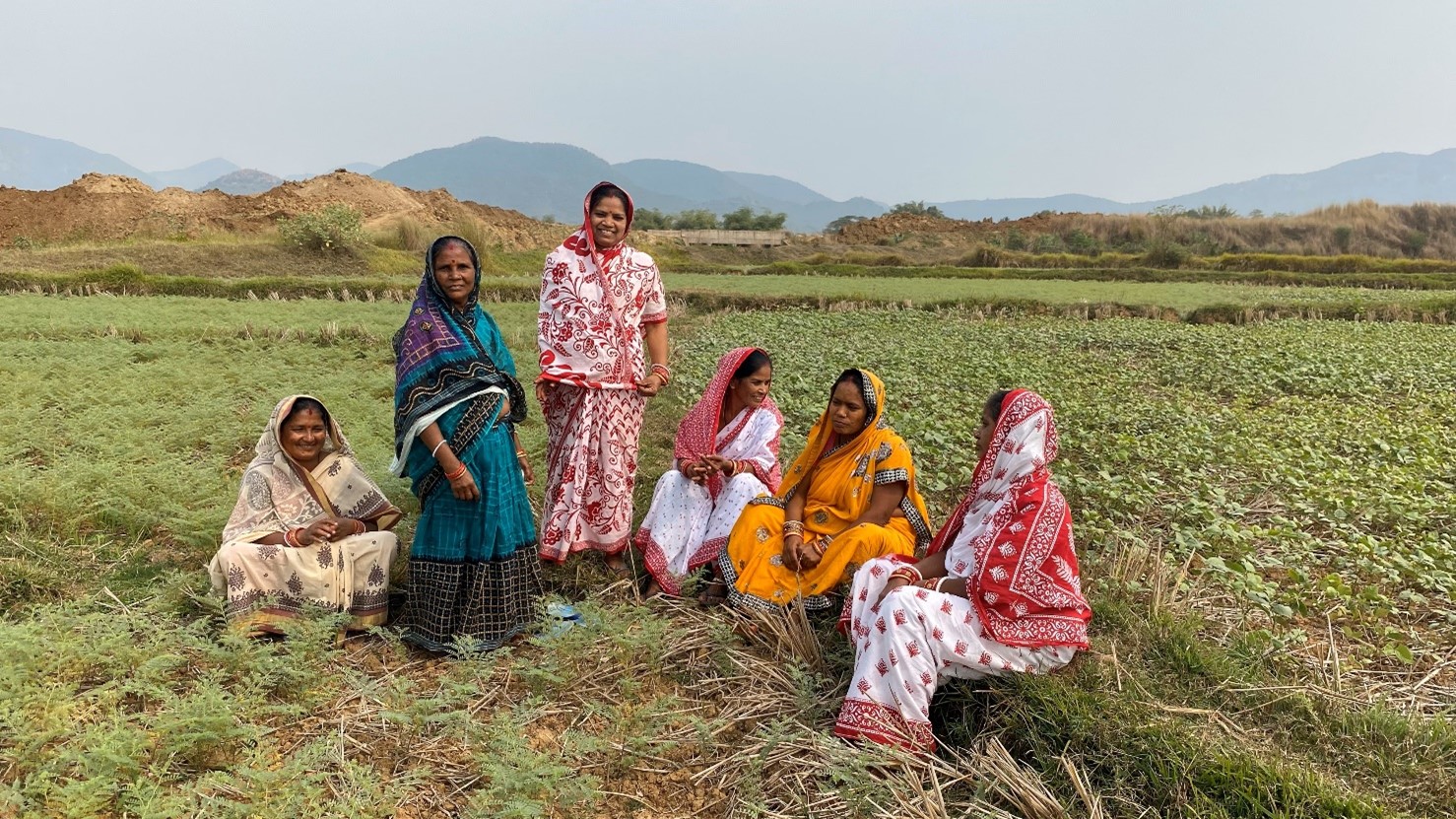Celebrating Farmers’ Day and Partners’ Meet at ICARDA India’s Food Legume Research Platform (FLRP)
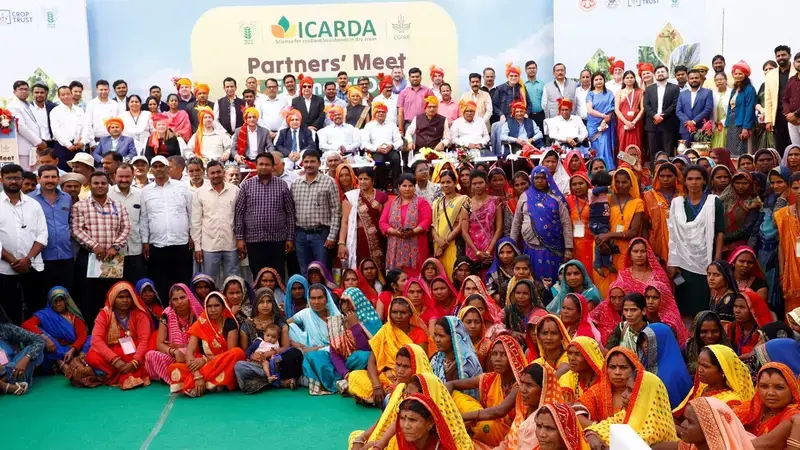
To commemorate the foundation day of the FLRP, ICARDA organized a Partners Meet and Farmers' Day on 24th February 2024, bringing together over 500 farmers, collaborators, and scientists from partner institutes, to showcase commitment for innovation to meet agricultural challenges in India.
In India, the agricultural sector contributes around one fifth of the total GDP and employs over 50% of the Indian workforce, playing a vital role in food security, nutrition, and the socio-economic development of the nation. Pulses such as lentils are an essential component of the national diet, providing much-needed protein to a carbohydrate-rich cuisine. It's no surprise that India leads the world in production of pulses the unsung heroes of agriculture with the potential to revolutionize sustainable farming, particularly in the face of accelerating climate change.
Yet like many North Africa and Middle East countries, India and other South Asian countries have an economically unhealthy reliance on food imports, while climate change threatens domestic production of its staple crops. To research new approaches to strengthen its agricultural sectors, ICARDA launched the Food Legume Research Platform (FLRP) near Bhopal in the Indian state of Madhya Pradesh in 2016 to focus on discovering and implementing climate-smart traits in elite germplasm of key pulses like lentils, Kabuli chickpea, grasspea, faba bean, barley, and wheat.
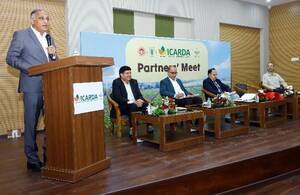
At the opening of the Partners Meet, Dr. Shiv Kumar Agrawal, ICARDA’s India Country Manager, expressed gratitude to long-term partners such as the Indian Council of Agricultural Research (ICAR), the Crop Trust, Bangladesh Agricultural Research Institute (BARI) and Nepal Agricultural Research Council (NARC), acknowledging their unwavering support in ICARDA’s mission.
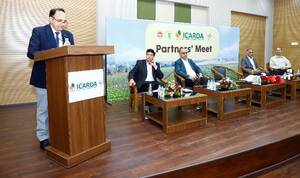
Chairing the meeting, Dr. Tilak Raj Sharma, the Deputy Director General for Crop Science at ICAR, commended ICARDA’s state-of-the-art laboratories equipped with cutting-edge technology, advanced genomic research facilities, and innovative speed breeding techniques, that enable ICARDA’s scientists to make significant strides in crop improvement goals such as drought heat, and pest resistant pulses. Distinguished guests and scientists from partner institutes also shared insights on new research areas such as gene editing, rapid generation advancement and the challenges associated with addressing current and future biotic (diseases such as wilt, rust, leaf diseases that are caused by living organisms, i.e. bacteria, viruses, fungus etc.) and abiotic stresses (such as drought, water stress, heat stress, flooding, excessive water, high salinity etc.
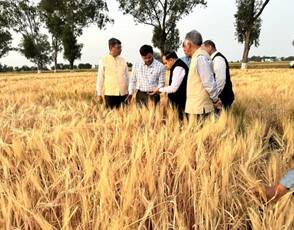
Dr. Sharma and a team of scientists also conducted a visit to the research fields to see ongoing crop improvement projects and activities at ICARDA's Food Legume Research Platform as well as discussed the research with crop breeders.
As part of the celebration, ICARDA also organized a Farmers’ Day to celebrate the vital contribution to food security via the knowledge and experience of smallholder farmers and discuss with them the benefits and any disadvantages of food legumes, barley, wheat and cactus varieties released by ICARDA and its partners. Such varieties have been widely adopted by farming communities in India and beyond, tailored to the challenges and obstacles farmers face, such as climate impacts on crops, and along with the availability of quality seed, appropriate training, farm machinery, and value addition support. The discussion was followed by a seed distribution ceremony.
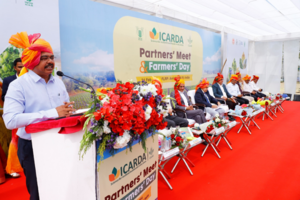
Mr. Ashok Barnwal, Additional Chief Secretary, Farmer Welfare and Agriculture Development Department (FW & ADD), Government of Madhya Pradesh, India, said “I commend ICARDA for their invaluable efforts in Madhya Pradesh’s agriculture and I encourage you to bolster your research efforts for better legume cultivation and capacity building of the state’s farmers.”
ICAR’s Deputy DG, Dr. Tilak Raj Sharma, added “ICARDA’s research on legumes, naked barley and durum wheat is impressive. The international nurseries and pre-bred lines provided by ICARDA play a crucial role in delivering climate-smart varieties.” He also emphasized the importance of international nurseries and pre-bred lines in supporting national research programs, enabling the development of climate-smart crop varieties to aid farmers in mitigating the impacts of climate change, and he highlighted ICARDA’s significant work in biofortification, addressing the issue of hidden hunger.
Dr. Benjamin Kilian, BOLD Project Lead at the Crop Trust, shared a valuable perspective on crop diversity in his address to the farmers. He outlined the efforts of ICARDA in preserving and harnessing crop wild relatives and primitive landraces, especially in underutilized crops such as grasspea.
ICARDA's FLRP team in India now looks towards the research effort in upcoming years to address the challenges ahead, highest of all climate change impacts in the country. ICARDA expresses gratitude to all partners for the successes the platform has achieved towards sustainable agriculture and enhanced food and nutrition security in India.
---------------------------------------------------
Among the distinguished guests were
- Dr. A Singh, Vice Chancellor of Rani Lakshmi Bai Central Agricultural University (RLBCAU, Jhansi;
- Mr. Rashmi Ranjan Nayak, Project Director at OIIPCRA, Department of Water Resources (DoWR), Govt. of Odisha;
- Dr. Gyanendra Pratap Singh, Director of ICAR- National Bureau of Plant Genetic Resources (ICAR-NBPGR)
- Dr. Vijay Kumar Yadav, Director of ICAR- Indian Grassland and Fodder Research Institute (IGFRI)
- Dr. Ravi Gopal Singh, Scientific Lead at International Maize and Wheat Improvement Center (CIMMYT)
- Dr. Mohammad Yasin, Dean of R.A.K College of Agriculture (RAKCA), Sehore

